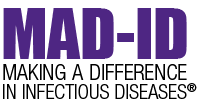
Practicum Guidelines
The purpose of the Antimicrobial Stewardship Training Programs’ Practical Component (or Practicum) is for the learner to apply and demonstrate knowledge and skill gained through the online and live didactic sessions of the respective programs. The practical component should be completed within twelve (12) months of completing the didactic components of either the Basic Stewardship Program or the Advanced Stewardship Program.
Requirements
-
The project must be completed (and preferably initiated) after completing the didactic parts of the program.
-
Applications must include a completed submission cover sheet.
-
Applications from more than one participant at a given institution should be submitted together (at the same time) unless each participant is reporting on a separate project initiated/completed at a different time. If two or more applicants are seeking credit for the same project, the project must be rigorous enough to justify multiple participants, and the cover letter must clearly explain the role and contribution of each.
Click here for Word Version of Practicum Cover Sheet
Acceptable Projects/Initiatives
Since the definition of Antimicrobial Stewardship can be broad based, there are many different types of activities that could be considered appropriate for the Practicum. Examples of these (although not limited to) can be found in the IDSA and SHEA guidelines published in Clinical Infectious Diseases (Barlam T, et al. Clin Infect Dis. 2016;62:1-27). The following will also serve as acceptable examples:
-
Educational seminars/lectures to healthcare personnel on stewardship principles, information on ASP polices, surveillance, etc.
-
Developing ASP guidelines and/or pathways and decision-support documents for appropriate use of antimicrobials.
-
Developing a form, template or format for the appropriate prescribing of antimicrobials as part of your organization’s ASP objectives.
-
Documentation of providing the following optimization of antimicrobials:
-
Appropriate use of combination therapy empirically based on antimicrobial surveillance data, or definitive based on culture results.
-
Streamlining or de-escalation of therapy on the basis of antimicrobial surveillance for empiric therapy or definitive culture results, etc.
-
Dose optimization on the basis of individual patient characteristics, i.e. weight, site of infection….and pharmacokinetic and pharmacodynamic principles (optimizing T>MIC, AUC/MIC, Cmax/MIC through use of extended infusions, or optimization of dose and dosing interval)
-
Parenteral to oral conversion (active conversion and documentation of converting patient’s parenteral therapy to oral equivalent or step- down therapy, etc.)
-
-
Surveillance
-
Active surveillance of resistance for targeted organisms
-
Compiling/reviewing/analyzing antibiogram data and changing pathways, guidelines for antimicrobial use, etc. based upon these results
-
-
Measuring the impact of antimicrobial stewardship activities
-
Collecting data on patient outcomes that support ASP activities
-
Developing drug usage reports
-
Determining cost data on drug usage, overall hospital costs including cost associated with length of stay, etc.
-
-
Outpatient or community setting:
-
Track usage patterns of antimicrobials for a particular practice (pediatrics, wound clinics, )
-
Track the usage patterns of anti-infectives during flu season (e.g., azythromycin, amoxicillin)
-
Examine prescribing patterns for otitis media, determine how many patients receive their antibiotics first vs. a trial of acetominophen per recommendations, etc. Perform counseling on the guidelines for otitis media, antibiotics vs. trial of analgesics and determine pre and post counseling how often parents try the analgesic route prior to antibiotics, etc.
-
Collect data on patients’ knowledge of antibiotics (no intervention) and determine compliance issues (follow-up), then perform counseling with each script for specific amount of time; determine compliance issues pre vs. post counseling; i.e Most States have an active campaign to educate patients in the community, and there are a number of programs on-line to obtain information to assist you on this type of intervention
-
If you are unsure of the appropriateness/acceptability of your planned project, or of the number of participants that can claim credit for the same project, please contact one of the members of the MAD-ID Scientific Committee via info@mad-id.org.
Application/Submission for Practical Component Credit
Once you have completed your project, please describe your initiative/intervention in the form of a detailed letter, which may include additional information such as documents prepared/used, tables of results, etc. The letter should provide a general description of the initiative (e.g., justification/approval of a stewardship program, education, dose optimization, IV to PO switch program, etc.) with enough detail so the reviewers can appreciate the rationale/need, preparation; and implementation steps, the dates of the intervention, the targeted population (audience, patients, etc.) and results to date. If you develop special forms (e.g., IV to PO conversion form, therapeutic substitution form, etc.), we encourage you to include those in your submission. Your letter should be countersigned by your stewardship medical director, stewardship committee director, pharmacy and therapeutics committee chair or pharmacy director, attesting to the fact that this is a new initiative and it has indeed been implemented.
Completed applications, including the cover letter and submission cover sheet, must be transferred electronically (via email) to us at info@mad-id.org.
DO NOT EMAIL YOUR SUBMISSION AS AN ENCRYPTED/SECURED EMAIL THAT REQUIRES AN ACCOUNT/PASSWORD TO ACCESS.
SUCH SUBMISSIONS CANNOT BE ACCEPTED BY MAD-ID.
Please consider submitting your practicum as an abstract to the MAD-ID Annual Meeting. Practicum submissions will receive a higher priority score for their abstract submission; see: Call for Abstracts.
If you have any further questions, you may contact the MAD-ID Scientific Committee via info@mad-id.org